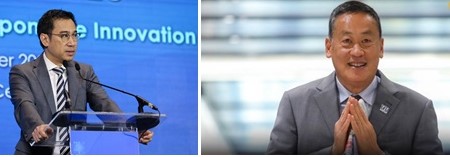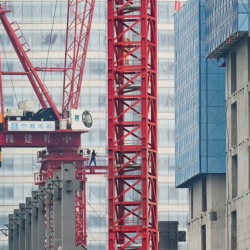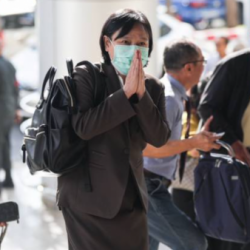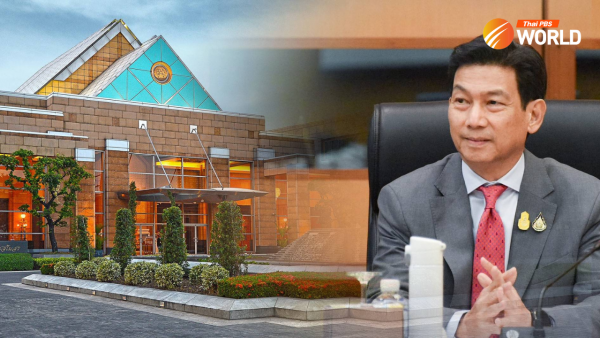Government and Thai central bank at odds over economic management

Against the backdrop of a bumpy economic recovery, the government and the central bank don’t seem to be seeing eye to eye over monetary policy.
Recently, in a post on his personal Facebook page, Prime Minister Srettha Thavisin complained that the Bank of Thailand (BOT) had raised the interest rate too high at a time of slower economic growth, which was hurting people’s welfare and small businesses.
Other prominent members of the Pheu Thai Party also blamed monetary policy for not facilitating economic recovery. They see the economy as moving in slow motion, offering the analogy of a frog in a pot of water being gradually heated, which realizes too late that it was in hot water.
Fear of government interference
The current policy rate of 2.5 per cent per annum is the highest in a long time. Critics, meanwhile, are worried that the government appeared to be signalling its intention to interfere in monetary policy, threatening the independence of the central bank.
Some see the recent weakening of the baht against the US dollar a consequence of investors losing confidence in the government’s economic management. Since the new coalition took power, there have been rumors that the central bank governor would be sacked. In response, Srettha assured that he would not force the central bank to lower its policy rate.
Many are speculating that recent incidents may lead to friction between the PM and BOT Governor Sethaput Suthiwartnarueput.
Last year, Sethaput had voiced his concern about the fiscal expansion policy when the government announced plans to launch its consumption stimulus at a cost of over 500 billion baht under the so-called digital wallet scheme.
Sethaput and several academics had urged the government to save money for harder times or spend money on productive investment, not for short-term consumption financed by debt. The government has been preparing to propose a 500-billion-baht borrowing bill to Parliament.
All eyes on MPC meeting
Meanwhile, there is brewing discontent on social media about the widening spread between commercial banks’ lending and deposit rates and their record profits. Many have called for the BOT to take action against the widening spread, citing low competition among commercial banks as one of the key factors.
The market will closely watch what the BOT’s Monetary Policy Committee (MPC) will do when the members hold their first meeting of the new year on February 7. Some analysts expect the MPC to leave the rate unchanged in order to assert the independence of the central bank. While some others see room to cut the rate, as the economy is stuck in a rut.
“Looking from Sethaput’s perspective, interest policy could have an immediate impact on the overall economy but subject to market volatility, it will not last long. Sethaput and bureaucrats at the Finance Ministry prefer targeted fiscal spending instead of using the monetary policy tool,” said Piyasak Manason, senior vice president at InvestX Securities Co’s wealth research department.
Their approach aims to maintain economic stability and is different from that of politicians who want to use both tools aggressively to jumpstart the economy.
Bleak economic outlook
The World Bank’s latest forecast for the global economy paints a grim picture, showing slowing growth for the third year in a row to 2.4 per cent this year from 2.6 per cent last year. Global economic growth for five years ending 2024 is set to be the slowest half-decade of GDP growth in 30 years, according to the World Bank.
It projected that growth next year would improve slightly to 2.7 per cent, which was still moderate. It forecasts the Thai economy will expand by 3.2 per cent this year and 3.1 per cent next year.
Many economists and business leaders have high hopes that exports will rebound this year from a contraction last year.
“All economic engines will function this year as exports will bounce back to boost the economy,” Chayawadee Chai-anant, BOT’s assistant governor, said.
The Thai National Shippers’ Council, an exporters’ club, projects exports will expand 1-2 per cent this year after an estimated contraction of 1per cent last year.
The Thai economy last year was largely driven by private consumption and the sharp recovery of tourism, as 28 million foreign tourists visited the country. This year both government spending, private consumption, private investment, tourism and exports are expected to contribute to growth.
Geopolitical risks
The biggest risk to exports and tourism is global geopolitics arising from trade tensions between the US and China, the Israel-Hamas war and the Russia-Ukraine war.
In his New Year’s speech, China’s President Xi Jinping said reunion with Taiwan was inevitable. His statement ahead of elections in Taiwan has been interpreted as an expression of hostility towards Taiwan, a democratically ruled island. With the People Progressive Party winning the presidential election, the tensions among China, Taiwan and the US is expected to rise.
The ongoing war in the Gaza Strip between Israel and Hamas shows no signs of ending. Recently, the US and the UK carried out air strikes on Houthi rebels from Yemen in response to their attacks on commercial shipping in the Red Sea. Rising threats in the Red Sea have made many container ship operators avoid the shorter route and instead move around the Cape of Good Hope in South Africa.
Tensions in the Red Sea have increased freight cost and could potentially disrupt supply chain and trade between Asia and Europe.
The spillover of the war in Gaza could potentially impact oil prices, which would hurt the Thai economy as the country is heavily dependent on imported oil and natural gas.
Thai government spending is likely to resume this year after a delay due to the time it took to form the coalition government after the general election in May 2023.
Parliament has passed the budget bill for fiscal 2024 in the first reading earlier in January. The government has budgeted expenditure at 3.48 trillion baht. More economic stimulus measures have started to be implemented, such as tax breaks for shoppers and those who want to buy new homes.
Optimistic central bank
The BOT has projected economic growth in two scenarios: 3.2 per cent without the digital wallet scheme, and 3.8 per cent if the scheme is implemented. The policy rate is unlikely to increase due to negative headline inflation recently.
However, there is the risk of some listed firms defaulting on their debt.
Private investment will expand by 3.6 to 3.9 per cent this year and foreign direct investment is set to rise due to many electric carmakers starting to build their factories in Thailand.
The number of foreign tourists is estimated at up to 34.5 million, closing in on the 40 million in the pre-COVID-19 period.
By Thai PBS World’s Business Desk






